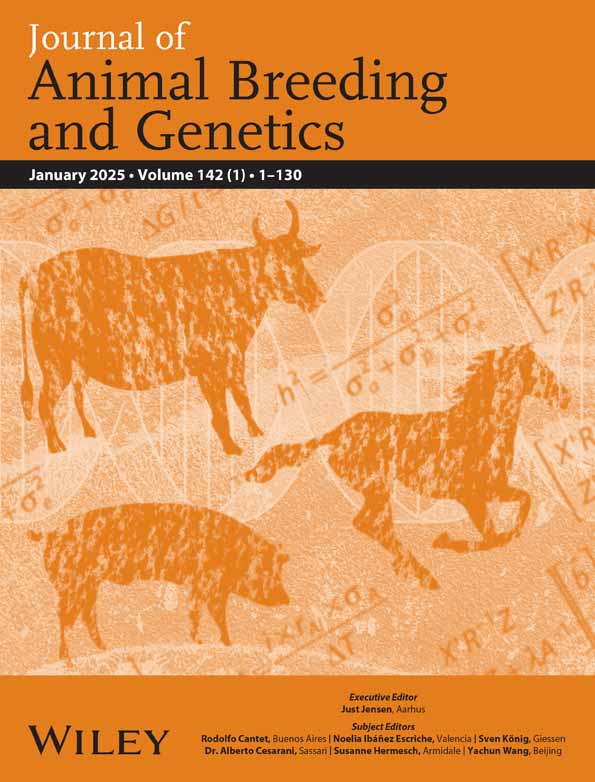Tag SNP selection for prediction of adaptation traits in Braford and Hereford cattle using Bayesian methods
Abstract
This study utilized Bayesian inference in a genome-wide association study (GWAS) to identify genetic markers associated with traits relevant to the adaptation of Hereford and Braford cattle breeds. We focused on eye pigmentation (EP), weaning hair coat (WHC), yearling hair coat (YHC), and breeding standard (BS). Our dataset comprised 126,290 animals in the pedigree. Out of these, 233 sires were genotyped using high-density (HD) chips, and 3750 animals with medium-density (50 K) single-nucleotide polymorphism (SNP) chips. Employing the Bayes B method with a prior probability of π = 0.99, we identified and tagged single nucleotide polymorphisms (Tag SNPs), ranging from 18 to 117 SNPs depending on the trait. These Tag SNPs facilitated the construction of reduced SNP panels. We then evaluated the predictive accuracy of these panels in comparison to traditional medium-density SNP chips. The accuracy of genomic predictions using these reduced panels varied significantly depending on the clustering method, ranging from 0.13 to 0.65. Additionally, we conducted functional enrichment analysis that found genes associated with the most informative SNP markers in the current study, thereby providing biological insights into the genomic basis of these traits.
CONFLICT OF INTEREST STATEMENT
The authors declare that there is no conflict of interest.
Open Research
DATA AVAILABILITY STATEMENT
The data that support this study's findings are available from the Conexao Delta G breeding program. Restrictions apply to the availability of these data, which were used under license for this study. Data may be obtained from the authors upon request with the permission of the owner breeders.




